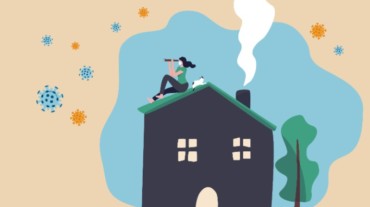
After the sad demise of actor Sushant Singh Rajput, the conversation around depression, and mental health in general, is becoming louder and louder. It wouldn’t be wrong to say that we are witnessing a mental health movement of sorts, with more and more people speaking up about their experiences.
And so over the course of the last week, we have heard and read a lot about the causes and symptoms of depression. In fact, a lot of medical experts are also sharing how you can help someone who is dealing with this affliction. A recent study, however, is shedding some light on how depression impacts the body.
Depression and cardiovascular diseases (CVD) are interlinked
According to a global study published in JAMA Psychiatry people who are suffering from depression could have an increased risk of cardiovascular disease (CVD) and even death.

The research team from Simon Fraser University in Canada provides evidence of the link between depressive symptoms and an increased risk of early death.
This study tracked 1,45,862 middle-aged participants from 21 countries and found a 20% increase in cardiovascular events and death in people with four or more depressive symptoms. Sadly, the risks were twice as high in urban areas and more than double in men.
Covid-19 also has a role to play in wrecking our mental health
Many studies have talked about how covid-19 impacts our mental health. According to an analysis, published in the Journal of the American Medical Association, the consequences of social isolation are so important that immediate direct intervention efforts are needed to address the impact of the outbreak on individual and population-level mental health.

The data suggests that depressive symptoms should be considered as important as traditional risk factors such as smoking, high blood pressure, and high cholesterol when preventing heart disease and early death.
The study result lends credibility to the existing World Health Organization (WHO) policies to integrate treatment and prevention of mental disorders into primary care.
That said, you need to be vigilant in case someone around you is showing signs of depression–like low mood, decreased interest, decreased energy, poor concentration, bleak, and pessimistic view of future, alteration in sleep, appetite, and sexual desire.
(With inputs from IANS)
Select Topics of your interest and let us customize your feed.
PERSONALISE NOW